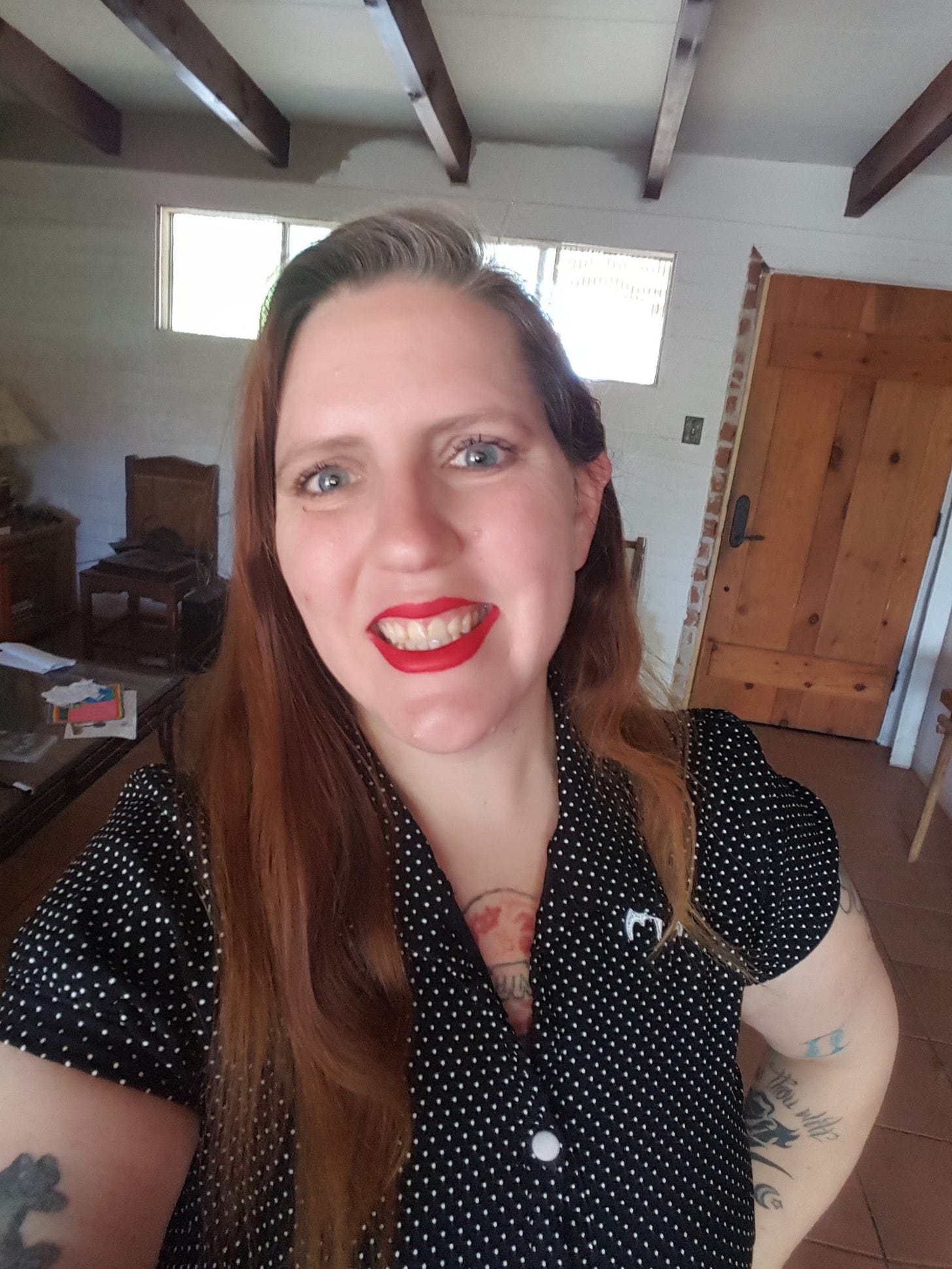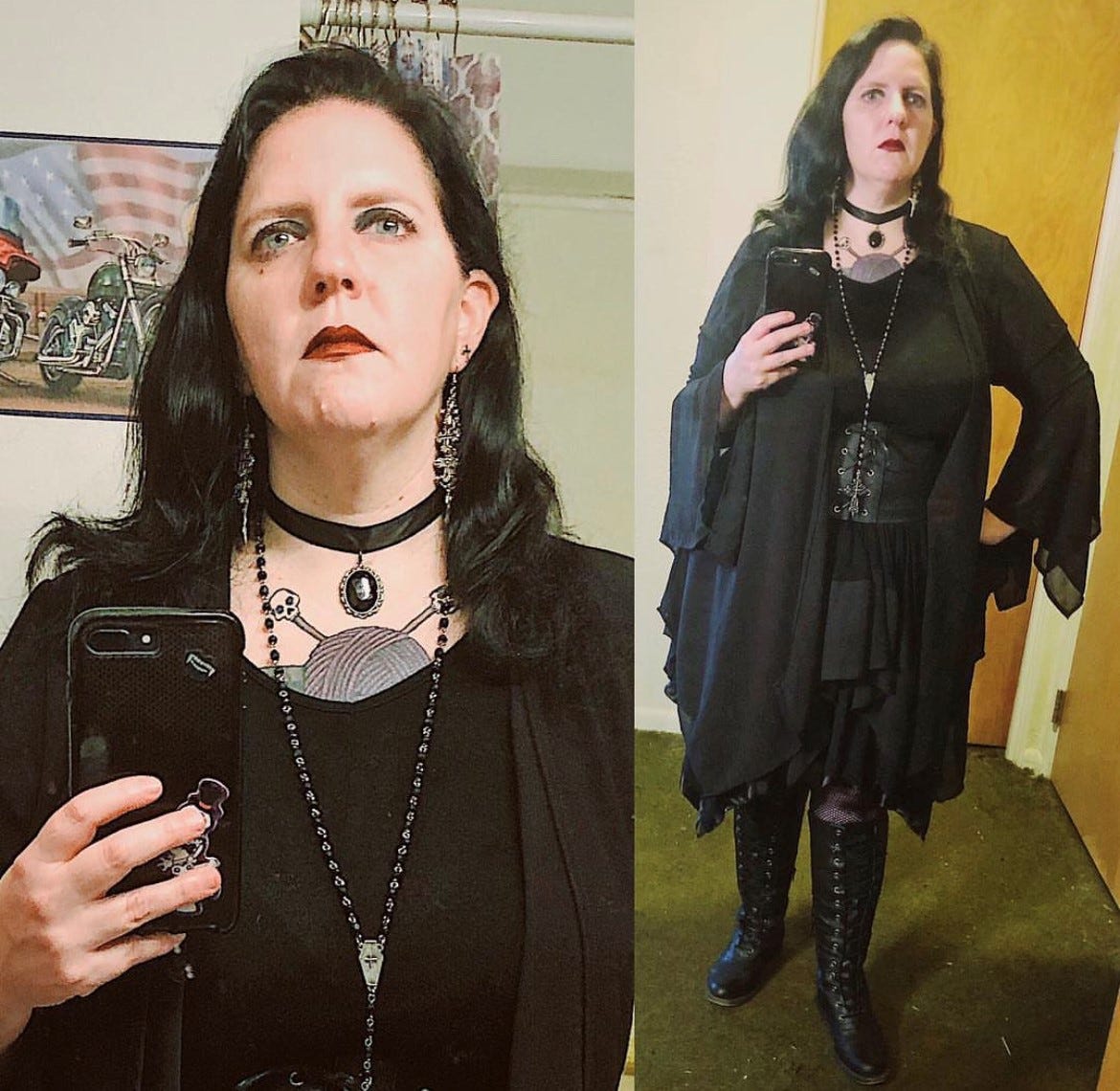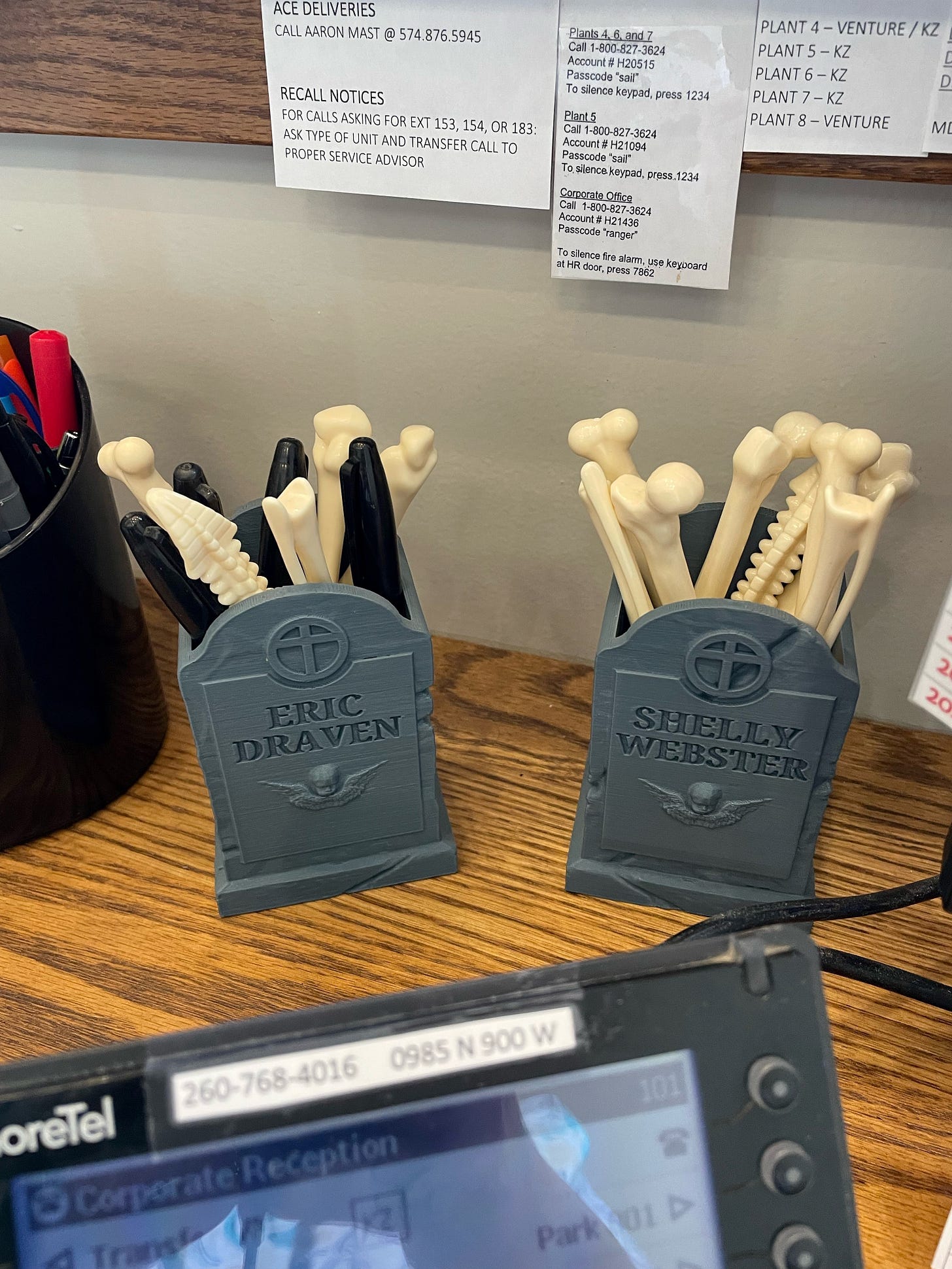When I became part of the subculture, like many I was in school. I went to a public high school that had a bare minimum dress code, and many of us used school as an outlet to show off exactly what our interests were. If you saw a boy with liberty spikes, an Operation Ivy shirt and ripped to shreds pants, you didn’t have to question where he belonged, and that was the statement he wanted to make. It was “cool” to have one’s interests on public display, both for teachers and students. It was how we identified one another and how the dreaded cliques were formed. These moments were easy on the kids — most of us didn’t have jobs to conform to, and we needed the recognition especially if we were new to the school or were in a state of constant flux for what we wanted to be. It was a great pleasure to pick out exactly what I was going to wear, and what I wanted to be for each day.
My nature is to be an introvert, and I really don’t enjoy a particularly active social life nor do I desire a wide group of friends. I used my wardrobe as a means to keep people away more than draw them in. I wanted to frighten and confuse. I wanted to make sure people knew I wasn’t available for conversation or friendship and my clothes were the easiest way to convey that message. I wasn’t the romantic, flowy goth most days, I was more like DIY ripped cargo pants, boots and a modified band shirt. It was more industrial, if things must be categorized in such a way. I used this front to help protect myself — and my social life showed it. I had two informal “boyfriends” when I was a sophomore, and I was dumped by both when I wouldn’t sleep with them after a month or two of “going out.” I didn’t seriously date again until I was almost out of high school by choice.
After high school I was in the military, and of course there were very high restrictions on clothes and hair for both males and females. When I wasn’t in uniform, I didn’t really “dress up” or go “all out” with my clothes. Again, it was band shirts and cargo pants for the most part. And that was the majority of my twenties. I do remember my closest friend and I going to see Rocky Horror in 2009 and I believe I dressed up for that. But for the most part, I didn’t dress up. One major reason for that was because I was in a very unhealthy relationship that caused me much strife and unhappiness which was reflected in my wardrobe. Towards the end of our relationship I began dressing more and more “goth” and doing the makeup and clothes and it brought me a sort of “release” from the relationship. I felt more “me” than I ever had, and I realized that this was who I was, and I could keep doing this because now there was no one to stop me!
By this time, oh about ten years ago or so, I was attending University and I could again wear whatever I wanted, and I dressed in dark colors with skulls and bats and other typical accoutrements and trappings associated with “goth.” I dyed my hair red. I wore heavy makeup. I began amassing Doc Marten boots again. It felt freeing and exhilarating to express myself after nearly a decade of trying to be as small as possible. Now I was dressing goth because it was who I was! It was ME and the most me I’ve ever been! It’s also worth noting that I didn’t have Instagram, and my Facebook was limited to friends — ever the introvert. I dressed up to be me, for me, about me. It was completely self-centered. I also snagged a new boyfriend (who would later end up becoming my husband) — his favorite band is the Cure. I think there’s enough said with that. While he doesn’t “dress goth” his sensibilities are still there and he appreciates who I am and how I dress.
To that, I feel I must address some of the clashes the goth subculture has with the rest of society. My only brother got married in 2014. It was a typical wedding, maybe 100-150 people, and there were normal wedding events — ceremony, reception, cake, bouquet toss, etc. As I am his only sibling (but not in the wedding party), I knew I was going to be heavily photographed and it was going to be an event where a lot of family would want to see me. I was in my 30’s and I had enough sense to realize that going “full goth” would not only be wildly inappropriate, it would also detract from the reason we were gathered — my brother’s wedding. I made the very mature decision to dress in a dark blue dress and do my hair in victory rolls. When I mentioned this years later in an online goth forum on Facebook, people (young, 18-20 in their own words) they mentioned that I was a “sell out” for conforming to the standards of “regular society.” This made me pause and really think about what goth performance meant, and what it means to me versus what it means to other goths, and what it means to the rest of society.
I don’t particularly care if anyone calls me a “sell out” as I don’t see the goth subculture as something that I must be “on” for all the time. That is a ridiculous way to act and doesn’t do the subculture any favors. I don’t need to showcase how awesome and dark and moody I am to my dentist, mailman or others I interact with on a regular basis. I have my fashion preference but I do it for ME and not anyone else. And I can have discretion over appropriate times and places for my wardrobe and my aesthetics. But what about flipping off society and being non-conformist? Isn’t that part of the draw of the subculture in the first place? Is it the cowards way to act like “goth” is a costume — something that can be changed on a whim?
When one is in their salad days and have very little constraints placed on them, it is easy to say you don’t care if people like you. You want to be judged, you want the scorn of the “norms” and you want to be seen for the outcast you believe yourself to be. But one day, maybe when you’re twenty or thirty, you will have a job interview. And sure, maybe you can get away with wearing black and having dyed hair, but you want to NAIL this interview. This is your dream job, what you went to post-secondary school for, or what you’ve always imagined yourself doing. Maybe it’s in tech, or healthcare, or education. Maybe you are on your second interview and you feel like this is one step closer to getting gainfully employed. You want these people to like you. For the first time in your life, you want the approval of strangers. So you modify — you take off the spider brooch or you take off the skull tie tack. You tone it down because you want the job. Unless you want a job that is completely on your own, such as a hair stylist or tattoo artist or similar trade, you will probably have to conform to a dress code in one way or another. And that’s okay! Goths don’t have to be in “fringe” jobs — I’ve met goths who are doctors, blue collar workers and post office workers. Your job doesn’t mean you “give up” what you like — and remember, it’s about music first and fashion second. If you listen to Joy Division and want to be goth, then you’re goth. No one should put anyone down for what they wear if it’s “less goth” than what we’ve grown accustomed to on social media, and there are plenty of times when less is more — jobs, family gatherings, social events, etc. Being nonconformist sometimes means finding ways of subverting expectations or finding loopholes in policy.
Ok, so you landed your job. Now what? Can you being to drape your cubicle in spiderwebs or hang up your Cure poster? First things first — take the temperature of where you work. How do others express their individuality? Is it limited to family photos and awards? How conservative is your industry typically? Who do you see on a regular basis? How do others dress? I’ve been in plenty of jobs where the dress code per HR is a strict professional dress, but everyone is fairly lax in practice. Where I currently work, almost everyone is in blue jeans and hoodies and I’m in an office environment. I don’t even own a pair of blue jeans! When I hear how lax my particular dress code was, I told HR that was I was just going to be me until I’m told to tone it down. I’m currently in a vintage 80’s blouse with a black skirt, nylons, and black flats. I’ve teased my hair out to Robert Smith craziness and my makeup is a little flashy. Nobody here cares, in fact they appreciate that I’ve interjected by personality into my wardrobe and that I’ve set myself apart from everyone else. It’s a standard I plan to keep. I’ve also placed a few elements of my personality around my desk — bat and tombstone note pads, pens shaped like bones and pen holders that are from the Crow — headstones that read “Shelly Webster” and “Eric Draven.” No one here seems to care.
In the last month two of my coworkers have lost one of their parents. The death of a parent severely alters your life, and the grief that comes with it is probably one of the hardest to bare. I have nothing but consolation and sympathy for anyone who has to shoulder that responsibility either alone or with siblings. It is something that should not be mocked or trivialized. I’ve seen people of the goth persuasion drive hearses for as long as I can remember, and I’ve thought about how insensitive it may appear to be if one drove up in a hearse in front of coworkers who have new and raw grief. Having a close relationship with death automatically places you as an outcast in American society, but you can also have an unintended bad reaction if you chose to flaunt this relationship in front of others who are processing a recent family death. And at what point is it not worth it? Alienating yourself at your job might not be a big deal or even a thought that crosses your mind, but if you work in a cooperative environment, there needs to be a sense of trust and you run the risk of ruining that trust when you insist on being demonstrative about aspects of your personality. It’s a lot of balance to make sure your environment isn’t stifling but at the same time you cannot overdo it by bombarding your new coworkers with an assortment of highly specific oddities that may or may not be suitable for the work environment.
My larger point is that being goth is essentially nonconformist. It was founded on nonconformist beliefs and continues to be nonconformist at its core regardless of how any hashtag has taken off on social media. It isn’t a costume, it’s a set of melancholy ideals grounded in lyrics of despondent bands that use their own personal existential crises as fuel for these lyrics. The melancholy and despondency is rooted in our preference for black clothing, be it ripped, flowing or skin tight. We will wear black to job interviews, make jokes at our own expense and gather up the odd, unique treasures that mirror our personalities. The great thing about being goth is that we are misfits and outcasts, and we relish and enjoy being against the mainstream. It’s fun to be different, and we dare to express that wherever we are and regardless of what we are wearing.









